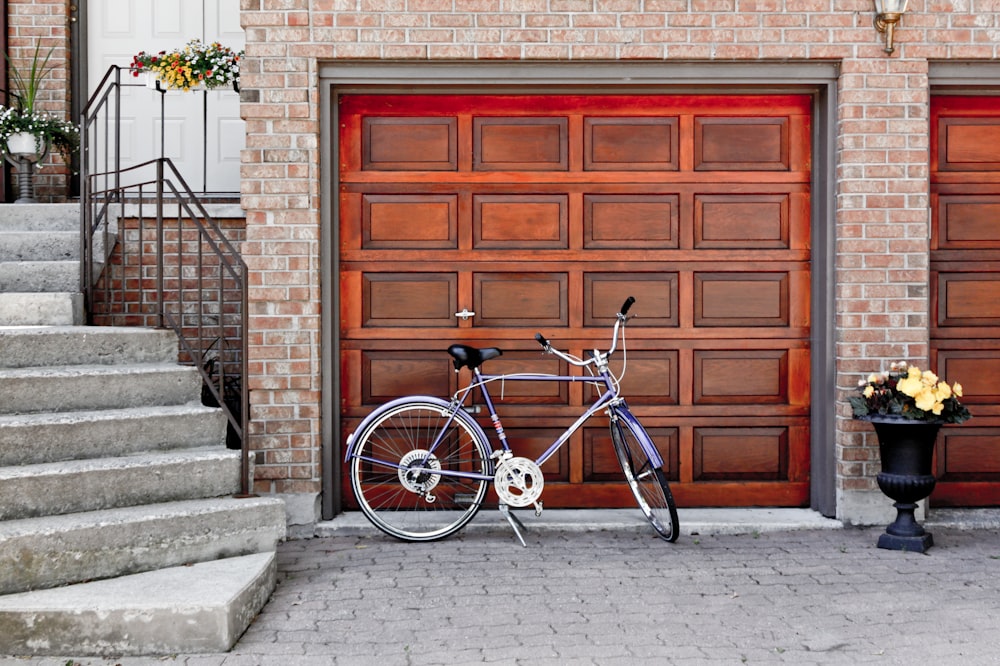Does car insurance cover hitting your garage door?
You slept badly last night, and now you’re late for work. Feeling groggy, you fumble with your coffee, your bag and a phone call as you get into the car. Time to back out of the garage. Bang! You hit your own garage door.

You slept badly last night, and now you’re late for work. Feeling groggy, you fumble with your coffee, your bag and a phone call as you get into the car. Time to back out of the garage. Bang! You hit your own garage door. Now you’re really late – and you need to figure out who’s responsible for fixing your garage door. It’s your car and your house. Does car insurance cover hitting your own garage door, or does homeowners insurance? What if you’re a renter?
Common damage caused by crashing into a garage door
Most collisions between a car and a garage door damage the bottom few panels of the garage door. If you hit your garage door, you might dent or break the bottom panels. At higher speeds or with a larger vehicle like a minivan or pickup truck, you could also bend the track (the metal pieces that keep the garage door aligned as it moves up and down), the rollers or the hinges. A damaged track is a safety issue because it can make garage doors behave in unpredictable ways. If the door seems seriously broken or out of alignment, stay clear until it’s fixed.
As for your car, your average garage door accident won’t do much damage. Crashing into a garage door at a low speed could dent or scratch your bumper. If you hit the garage door from the outside while driving faster, the damage might be worse. A falling garage door could crack your windshield or dent the top of your car.

Does car insurance cover garage door repairs?
Liability insurance, a part of your car insurance, covers damage from accidents that you cause. Unfortunately, it doesn’t cover damage you cause to your property. So, if you own your home and hit your own garage door, car insurance won’t cover the repair.
If you hit someone else’s garage door, your liability coverage will help pay for it. The garage door of a house or apartment you rent is legally your landlord’s property. If you hit the garage door of your apartment or rental house, the landlord can file a claim with your car insurance company. Your insurance will reimburse them for the repairs.
If you have collision coverage, it should cover damage to your car from hitting the garage door. However, most collision coverage has a deductible, so you should check to see how much car repairs will cost before filing a claim. Your insurance won’t pay for repairs unless they cost more than the deductible. Filing a claim on an inexpensive repair adds to your claims history without financial benefit for you. In fact, it could contribute to raising your premium payment next year.
Does homeowners insurance cover garage doors?
Homeowners who hit their own garage door will be happy to hear that homeowners insurance usually covers damage to garage doors. Yes, even if you caused it! Like collision coverage, homeowners coverage usually has a deductible. So, filing a claim for a minor dent in your garage door might not be worth it.
However, if the damage is bad enough that you need to hire a repairperson, call your homeowners insurance provider first. Make sure your policy covers this kind of damage. Then you’ll know how much you’ll have to pay yourself versus how much your insurance will cover.
Dealing with a garage door accident
Hitting your own garage door is frustrating and embarrassing, but the most important thing is your safety. If you hit your own garage door, make sure you and your passengers are okay before you start worrying about insurance. Stay clear of the garage door if the tracks are damaged. After dealing with any injuries and safety risks, take a few minutes to calm down and call your insurer.
If you’re having trouble finding the right car insurance, homeowners insurance, or renters insurance for your needs, contact Surround Insurance. We’re here to help.

